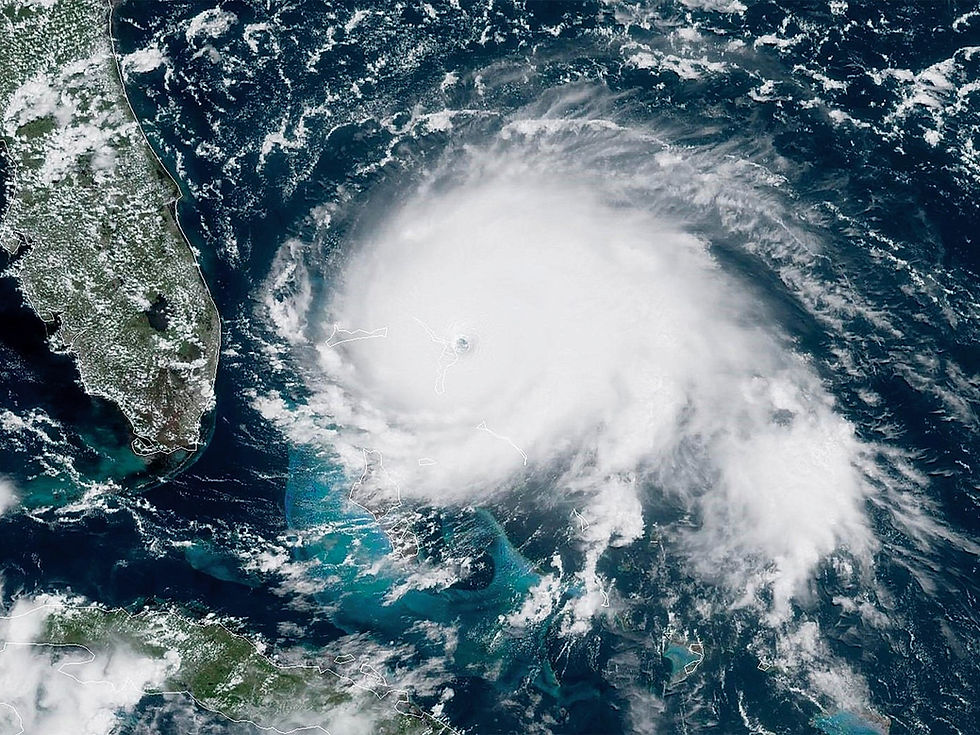How to Prepare Your Yacht for Hurricane Season
- Ben Ward
- Aug 4, 2025
- 3 min read
Updated: Aug 26, 2025

If you own a yacht and live in a hurricane-prone area—like Florida, the Gulf Coast, or the East Coast—then hurricane season is a real and present threat to your vessel, your finances, and your peace of mind. Preparing your yacht ahead of time is one of the smartest moves you can make, and it could be the difference between experiencing a total loss and a swift recovery.
Here’s what every yacht owner should know (and do) before hurricane season.
1. Understand Your Insurance Policy Inside and Out
Before you double your dock lines or start putting out every fender you own, you need to read the fine print on your insurance policy. Every marine insurance provider has different requirements when it comes to hurricanes. Failing to follow them exactly can void your coverage—just when you need it most.
Key things to check:
Named Storm Clauses: Many policies change coverage terms once a storm is named.
Geographic Exclusions: Some policies require you to move the boat north of a certain latitude by a specific date.
Haul-Out Provisions: Some insurers require (or reimburse) haul-out costs during a storm warning.
Documentation Requirements: Some providers may ask for photos, marina contracts, or proof that your hurricane plan was followed.
If you're unsure, contact your insurance agent in advance and request a written explanation of what’s required. Don't wait until a storm is approaching!
2. Develop a Hurricane Preparedness Plan
A solid hurricane plan is your blueprint for action when time is short. Ideally, this should be a written document you can share with marina staff, crew, or a boat management company.
Your plan should include:
Haul-out arrangements (where, when, and how)
Secure marina or hurricane-rated mooring options
List of gear to remove or secure
Contact info for key parties (insurance agent, marina manager, crew)
Some marinas or insurance providers may require you to file a copy of this plan with them annually.
3. Haul out or Secure in Place: Decide Your Best Option
Hauling your yacht out of the water and blocking it on land is generally the safest option—but only if it's done correctly. The boat must be supported with proper jack stands and strapped down using ground anchors to prevent shifting or toppling.
If hauling out isn't possible:
Find a protected hurricane hole with good holding ground.
Use double lines, chafe gear, and extra fenders.
Remove all canvas, sails, biminis, and anything else that can catch wind.
Secure anchors fore and aft with sufficient scope.
Never leave your boat at a standard fixed dock unless it’s specifically designed for storm protection.
4. Remove or Secure Equipment and Electronics
High winds can turn loose gear into dangerous projectiles.
Before the storm:
Strip the deck of loose gear: cushions, grills, fishing rods, etc.
Remove valuable electronics or store them in a dry, secure location.
Close seacocks (except cockpit drains) and shut down electrical systems.
Make sure your bilge pump is working and battery banks are fully charged.
Label what was removed and where it belongs so you can reinstall it quickly post-storm.
5. Work with Your Marina Early
Many marinas fill up fast with haul-out or storm preparation requests once a hurricane is forecasted. Don’t wait!
Get on their haul-out priority list early in the season.
Ask if they have a hurricane plan and where your boat will be placed.
Make sure they have a copy of your insurance and your hurricane plan on file.
6. Document Everything
Before a storm:
Take photos and videos of your yacht from all angles, inside and out.
Document your preparations—especially if required by your insurance.
After the storm:
Re-document everything as soon as it’s safe.
Contact your insurance company immediately with any damage claims.
Final Thoughts: Prepare Your Yacht for Hurricane Season
Preparing your yacht for hurricane season isn't just about protecting the vessel—it's about protecting your investment, minimizing downtime, and ensuring you're covered if the worst happens. With a solid plan, good communication with your marina, and strict adherence to your insurance requirements, you’ll be prepared to weather any storms the season might send your way.




Comments